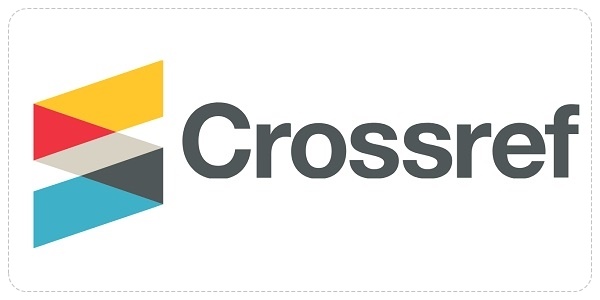Need Analysis of Guidance and Counseling Teachers Towards Cyber Counseling Training
Abstract
During the Covid-19 pandemic, guidance and counseling teachers in the field faced a difficult situation, forcing them to provide online services to students. This study aims to analyze the needs of guidance and counseling teachers for cyber counseling training. The research method used is a qualitative approach by applying empirical phenomenological research. The results of the study indicate that guidance and counseling (BK) teachers need cyber counseling training, analyzed in several aspects, including: (1) Barriers, which are indicated by (a) BK teachers have difficulty interpreting students' non-verbal language when providing online-based services; (b) constrained by the stability of the internet network; and (c) the minimum internet quota owned by students; (2) Insights and attitudes, which are indicated by: (a) BK teachers do not know anything at all and do not provide online-based services,; (b) knowing but confused in starting and doing; (c) positive thinking, utilizing creativity, and daring to start even though they have not mastered the conceptual framework and praxis; (3) Needs, where the aspects needed by BK teachers for cyber counseling training include: (a) online-based individual counseling service construction; (b) how to make online assessments that are attractive to students; (c) how to provide effective and efficient services.
Keywords
Full Text:
PDFReferences
Aini, H., & Mudjiran, M. (2020). Cybercounseling as one of the skills in the guidance and counseling service in the 21st century. Southeast Asian Journal of Technology and Science, 1(1), 23–26. https://doi.org/10.29210/81058000
Aswar, A., Syarif, S., Sulkipli, S., & Amirullah, M. (2021). Analisis arah kebijakan sekolah terhadap penggunaan gawai android dalam aktivitas belajar peserta didik di masa pandemi covid-19. Jurnal Kependidikan: Jurnal Hasil Penelitian Dan Kajian Kepustakaan Di Bidang Pendidikan, Pengajaran dan Pembelajaran, 7(1), 247. https://doi.org/10.33394/jk.v7i1.3323
Baker, K. D., & Ray, M. (2011). Online counseling: The good, the bad, and the possibilities. Counselling Psychology Quarterly, 24(4), 341–346. https://doi.org/10.1080/09515070.2011.632875
Bastemur, S., & Bastemur, E. (2015). Technology Based Counseling: Perspectives of Turkish Counselors. Procedia - Social and Behavioral Sciences, 176(1998), 431–438. doi: https://doi.org/10.1016/j.sbspro.2015.01.493
Beidoğlu, M., Dinçyürek, S., & Akıntuğ, Y. (2015). The opinions of school counselors on the use of information and communication technologies in school counseling practices: North Cyprus schools. Computers in Human Behavior, 52, 466–471. https://doi.org/10.1016/j.chb.2015.06.022
Budianto, A. E., Aziz, A., & Hidayah, N. (2019). (2019, November). ICT application in cyber counseling as a teacher accelerator with optimizing WhatsApp based mobile computing. In Journal of Physics: Conference Series (Vol. 1375, No. 1, p. 012006). IOP Publishing. 10.1088/1742-6596/1375/1/012006
Chan, G. H. (2020). A comparative analysis of online, offline, and integrated counseling among hidden youth in Hong Kong. Children and Youth Services Review, 1149(2020), 1-10. https://doi.org/10.1016/j.childyouth.2020.105042
Cipolletta, S., & Mocellin, D. (2018). Online counseling: An exploratory survey of Italian psychologists’ attitudes towards new ways of interaction. Psychotherapy Research, 28(6), 909–924. https://doi.org/10.1080/10503307.2016.1259533
Dowling, M., & Rickwood, D. (2013). Online counseling and therapy for mental health problems: A systematic review of individual synchronous interventions using chat. Journal of Technology in Human Services, 31(1), 1–21. https://doi.org/10.1080/15228835.2012.728508
Flores, S. (2012). Online counseling and online counselor preparation: A mixed methods investigation (Doctoral dissertation, Texas A&M University-Corpus Christi).
Foon, L. W., Zainudin, Z. N., Yusop, Y. M., Norhayati, W., & Othman, W. (2020). E-Counselling : The Intention, Motivation and Deterrent among School Counsellors. Universal Journal of Educational Research, 8(3c), 44–51. doi: 10.13189/ujer.2020.081605
Gading, I. K. (2020). The Development of Cyber Counseling as a Counseling Service Model for High School Students in the Digital Age. JPI (Jurnal Pendidikan Indonesia), 9(2), 301. https://doi.org/10.23887/jpi-undiksha.v9i2.25469
Gaol, F. L., & Hutagalung, F. D. (2017). Social interactions and networking in cyber society. Springer.
Hidayati, R., Hidayah, N., Ramli, M., Hambali, I. M., Nor, M., & Lestari, I. (2021). Cyber Counseling : Counseling in the digital age under the Covid 19 pandemic. Turkish Journal of Physiotherapy and Rehabilitation, 32(3), 8157–8165.
Irawan, A. W., & Aswar, A. (2020). Makna Menjadi Guru Bimbingan Konseling (Studi Fenomenologi Terhadap Fresh Graduate). JKI (Jurnal Konseling Indonesia), 5(2), 47–53. https://doi.org/10.21067/jki.v5i2.4368
Li, Lau, P., Jaladin, R. A. M., & Abdullah, H. S. (2013). Understanding the Two Sides of Online Counseling and their Ethical and Legal Ramifications. Procedia - Social and Behavioral Sciences, 103, 1243–1251. https://doi.org/10.1016/j.sbspro.2013.10.453
Mappiare-AT, A. (2013). Tipe-tipe metode riset kualitatif untuk eksplanasi sosial budaya dan bimbingan konseling. Malang: Elang Mas bersama Prodi Bimbingan dan Konseling Fakultas Ilmu Pendidikan Universitas Negeri Malang.
Mishna, F., Bogo, M., & Sawyer, J.-L. (2015). Cyber Counseling: Illuminating Benefits and Challenges. Clinical Social Work Journal, 43(2), 169–178. doi: 10.1007/s10615-013-0470-1
Pandang, A., & Anas, M. (2018). Analisis permasalahan dan kebutuhan penguatan kompetensi guru bimbingan konseling di Kota Makassar. Indonesian Journal of Educational Science (IJES), 1(1), 1–16.
Paterson, S. M., Laajala, T., & Lehtelä, P. L. (2019). Counsellor students’ conceptions of online counselling in Scotland and Finland. British Journal of Guidance and Counselling, 47(3), 292–303. https://doi.org/10.1080/03069885.2017.1383357
Pattinson, C. (2017). ICT and green sustainability research and teaching. IFAC-PapersOnLine, 50(1), 12938–12943. https://doi.org/10.1016/j.ifacol.2017.08.1794
Radjah, C. L., Atmoko, A., & Simon, I. M. (2018). The use of itcs on counselors to enhance professionalism: A preliminary study. 164(Icli 2017), 64–68. 10.2991/icli-17.2018.13
Ramli, M., Hidayah, N., Eva, N., Nor, D. M. B. M., Saputra, N. M. A., & Hanafi, H. (2020, October). The counselors’ need for the development of a solution-focused cybercounseling model for junior high school students. In 2020 6th International Conference on Education and Technology (ICET) (pp. 209-213). IEEE. 10.1109/ICET51153.2020.9276597
Salleh, A., Hamzah, R., Nordin, N., Ghavifekr, S., & Joorabchi, T. N. (2015). Online counseling using email: a qualitative study. Asia Pacific Education Review, 16(4), 549–563.
Sare, Y. D., Hidayah, N., & Rahman, D. H. (2020). Historical guidance and counseling perspective in Indonesia. In 6th International Conference on Education and Technology (ICET 2020) (pp. 389-392). Atlantis Press. 10.2991/assehr.k.201204.075
Sari, M. P., & Herdi, H. (2021). Cyber Counseling: Solusi konseling di masa pandemi. Jurnal Paedagogy, 8(4), 579–585. doi: https://doi.org/10.33394/jp.v8i4.3949
Situmorang, D. D. B. (2020). The issues of transference and countertransference in tele-psychotherapy during COVID-19 outbreak. Asian Journal of Psychiatry, 54(2020), 102427. 10.1016/j.ajp.2020.102427
Smith, J. A., Flowers, P., & Larkin, M. (2009). Analysis: theory, method and research. London: SAGE Publications.
Supriyanto, A., Hartini, S., Irdasari, W. N., Miftahul, A., Oktapiana, S., & Mumpuni, S. D. (2020). Teacher professional quality: Counselling services with technology in Pandemic Covid-19. Counsellia: Jurnal Bimbingan Dan Konseling, 10(2), 0(2), 176-189. http://doi.org/10.25273/counsellia.v10i2.7768
Ulfiah, U. (2018). Functional requirements analysis of E-counseling. Journal of Theoretical and Applied Information Technology, 96(18), 6075–6084.
Yuniarti, W., & Yusuf, M. (2021). The need of counseling services in pandemic covid-19 for vocational students. Annals of the Romanian Society for Cell Biology, 25(6), 5975-5984.
Zainudin, Z. N., & Yusop, Y. M. (2018). Cyber-counseling : Is it really new ? International Research Journal of Education and Sciences, 2(2), 19-24.
DOI: https://doi.org/10.17509/pdgia.v20i2.43813
Refbacks
- There are currently no refbacks.
INDEXED BY

This work is licensed under a Creative Commons Attribution-ShareAlike 4.0 International License
















